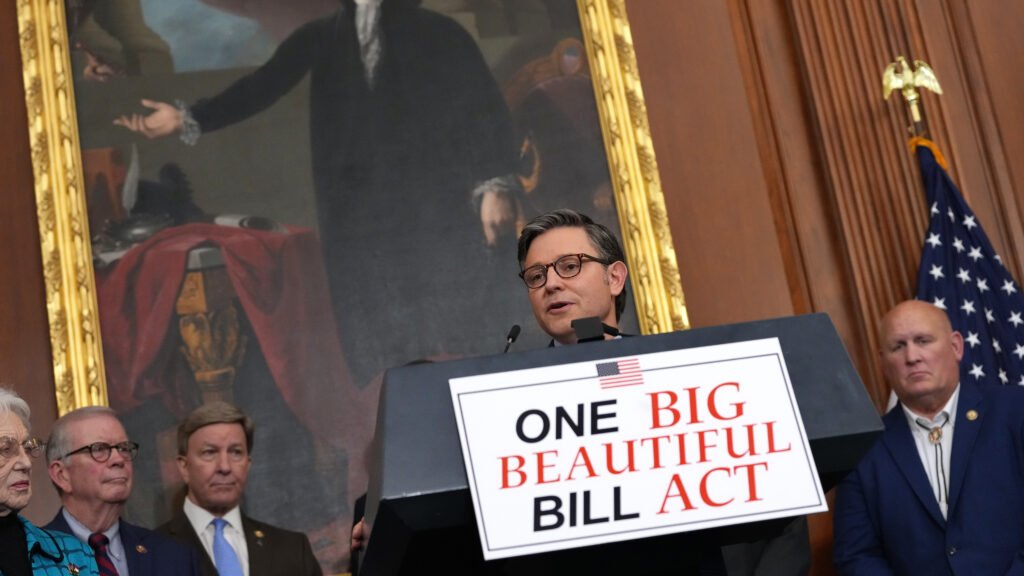The House of Representatives passed President Trump’s tax-cutting plan in the early hours of Thursday morning, along with accompanying health care measures aimed at partially funding the tax cuts. This revised bill includes significant changes from earlier drafts, with a focus on cutting government spending, limiting Medicaid expansion, and potentially restricting coverage for abortion care. Additionally, the bill introduces new restrictions on health care coverage for immigrants, including legal residents.
The passage of the bill marks a significant victory for both President Trump and House Speaker Mike Johnson (R-La.). Johnson had to navigate the varying demands of moderate Republicans, who sought to limit cuts to Medicaid, and conservative lawmakers, who pushed for deeper reductions in government spending.
The bill’s provisions have sparked debate and controversy, with critics raising concerns about the potential impact on vulnerable populations and the overall accessibility of health care services. The inclusion of measures that could limit coverage for abortion care has drawn particular scrutiny and sparked passionate discussions among lawmakers and advocacy groups.
As the bill moves forward, it will face further scrutiny and negotiations in the Senate, where lawmakers will have the opportunity to propose amendments and revisions. The ultimate outcome of the bill remains uncertain, as it navigates the complex legislative process and faces opposition from various stakeholders.
In conclusion, the passage of President Trump’s tax-cutting plan with accompanying health care measures represents a significant milestone in the ongoing debate over health care policy and government spending. The bill’s provisions have the potential to impact millions of Americans and reshape the landscape of health care in the country. As the bill progresses through the legislative process, it will continue to be a focal point of discussion and debate among lawmakers, stakeholders, and the public.


